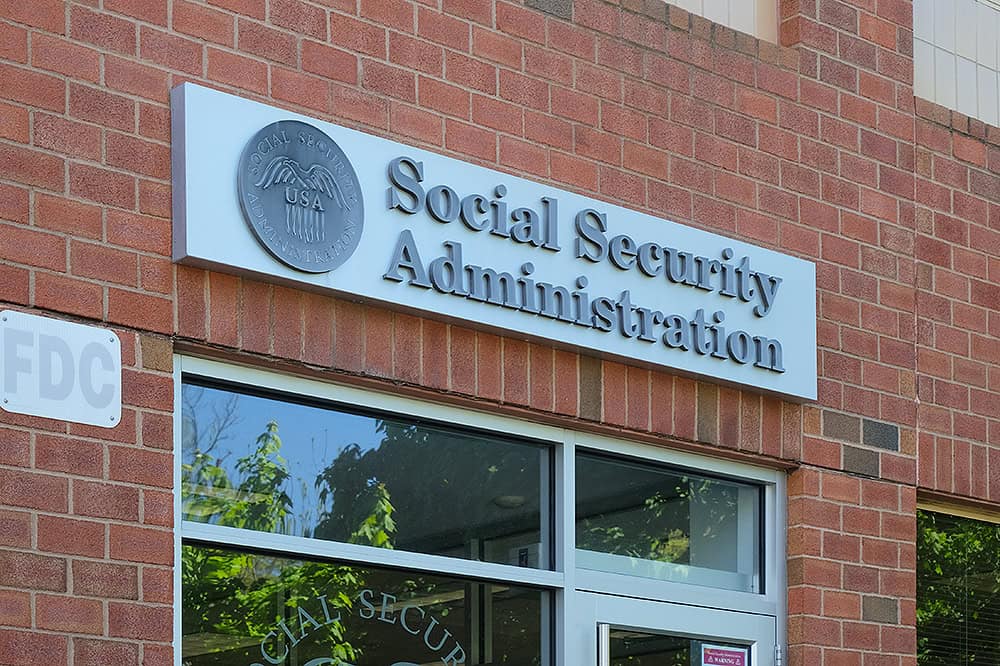Voters Concerned about Fiscal Irresponsibility in Washington as Lawmakers Add Red Ink
The December 2019 Fiscal Confidence Index, Modeled after the Consumer Confidence Index, is 45 (100 is Neutral)
NEW YORK (January 7, 2020) — With Congress and the president adopting a Fiscal Year 2020 budget that will result in a deficit this year of greater than $1 trillion, addressing the unsustainable fiscal outlook remains a high priority for voters, according to the Peter G. Peterson Foundation’s monthly Fiscal Confidence Index. The December Fiscal Confidence Index, modeled after the Consumer Confidence Index, is 45 (100 is neutral), indicating that voters remain deeply concerned and want corrective action from their leaders.
The December index shows broad bipartisan and cross-generational agreement that the debt should be a top priority for Congress and the president. Nearly eight in 10 voters (77%) want addressing the debt to be a top-three priority, including a 2019-high of 52% who “strongly agree.” Fiscal concern spans party lines, with 70% of Democrats, 76% of independents and 84% of Republicans agreeing that it should be a top-three priority. That goal is also shared among 76% of those ages 18 to 44, 77% of those ages 45 to 64, and 76% of those older than 65 years.
“As another unfortunate year of fiscal irresponsibility comes to a close, voters are sending a clear message to Washington that they want fiscal leadership,” said Michael A. Peterson, CEO of the Peterson Foundation. “While lawmakers are adding red ink, voters are calling for them to manage the debt, invest in our future and address national challenges. Getting our fiscal house in order is essential to maintaining our economic prosperity and leadership role in the world.”
The Fiscal Confidence Index measures public opinion about the national debt by asking six questions in three key areas:
- CONCERN: Level of concern and views about the direction of the national debt.
- PRIORITY: How high a priority addressing the debt should be for elected leaders.
- EXPECTATIONS: Expectations about whether the debt situation will get better or worse in the next few years.
The survey results from these three areas are weighted equally and averaged to produce the Fiscal Confidence Index value. The Fiscal Confidence Index, like the Consumer Confidence Index, is indexed on a scale of 0 to 200, with a neutral midpoint of 100. A reading above 100 indicates positive sentiment. A reading below 100 indicates negative sentiment.
Fiscal Confidence Index Key Data Points:
- The December 2019 Fiscal Confidence Index value is 45. (The November value was 45. The October value was 54.)
- The current Fiscal Confidence Index score for CONCERN about the debt is 47, indicating deep concern about the debt. The score for debt as a PRIORITY that leaders must address is 23, indicating that Americans want elected leaders to make addressing long-term debt a high priority. The score for EXPECTATIONS about progress on the debt is 65. The Fiscal Confidence Index is the average of these three sub-category scores.
- For a description of the complete methodology, see the Appendix below.
The Peter G. Peterson Foundation commissioned this poll by the Global Strategy Group and North Star Opinion Research to survey public opinion on the national debt. The online poll included 1,001 registered voters nationwide, surveyed between December 16, 2019 and December 19, 2019. The poll has a margin of error of +/- 3.1%. The poll examined voters’ opinions on the national debt, political leadership, and America’s fiscal and economic health.
Detailed poll results can be found online at: www.pgpf.org/FiscalConfidenceIndex.
About the Peter G. Peterson Foundation
The Peter G. Peterson Foundation is a nonprofit, nonpartisan organization that is dedicated to increasing public awareness of the nature and urgency of key fiscal challenges threatening America’s future, and to accelerating action on them. To address these challenges successfully, we work to bring Americans together to find and implement sensible, long-term solutions that transcend age, party lines and ideological divides in order to achieve real results. To learn more, please visit www.pgpf.org.
APPENDIX: Fiscal Confidence Index Methodology and Questions
- The Fiscal Confidence Index is released monthly by the Peter G. Peterson Foundation.
- The Fiscal Confidence Index value is based on six questions in three categories.
- As is done with the Consumer Confidence Index, the first step in calculating the Fiscal Confidence Index is determining the “Relative Value” for each question. This calculation is made by taking the positive response for each question and dividing it by the sum of the positive and negative responses. Each question was asked on a four-point scale, and answers were weighted according to intensity, with the strongest responses counting twice as much as the middle responses (“much” better or worse answers count twice as heavily as “somewhat” better or worse answers).
- The scores for the Concern, Priority, and Expectations categories are determined by averaging the scores derived from the two questions in each category.
- The Fiscal Confidence Index value is converted from the Relative Value to place it on a scale on which 100 indicates equal positive and negative sentiment, while values below 100 indicate negative sentiment and values above 100 indicate positive sentiment.
- The questions are as follows:
| CONCERN (47) | |||
|---|---|---|---|
| Thinking about our national debt over the last few years, would you say your level of concern has increased or decreased? ◊ Is that a lot or just a little? |
December 2019 | November 2019 | October 2019 |
| Increased a lot | 42% | 43% | 37% |
| Increased a little | 30% | 31% | 22% |
| Decreased a little | 9% | 9% | 11% |
| Decreased a lot | 5% | 4% | 10% |
| (No change) | 9% | 10% | 19% |
| (Don’t Know/Refused) | 5% | 4% | 2% |
| INCREASED (NET) | 72% | 74% | 58% |
| DECREASED (NET) | 13% | 13% | 21% |
| When it comes to addressing our national debt, would you say things in the United States are heading in the right direction or do you think things are off on the wrong track? ◊ Do you feel that way strongly or just somewhat? |
December 2019 | November 2019 | October 2019 |
| Right direction-Strongly | 13% | 12% | 16% |
| Right direction-Somewhat | 22% | 22% | 16% |
| Wrong track-Somewhat | 26% | 29% | 17% |
| Wrong track-Strongly | 34% | 33% | 41% |
| (Neither/Mixed) | 1% | 1% | 6% |
| (Don’t Know/Refused) | 5% | 4% | 5% |
| RIGHT DIRECTION (NET) | 34% | 34% | 31% |
| WRONG TRACK (NET) | 60% | 62% | 58% |
| PRIORITY (23) | |||
|---|---|---|---|
| Some people say that addressing the national debt should be among the president and Congress’ top 3 priorities. Do you agree or disagree? ◊ Do you feel that way strongly or just somewhat? |
December 2019 | November 2019 | October 2019 |
| Strongly agree | 52% | 50% | 46% |
| Somewhat agree | 25% | 26% | 27% |
| Somewhat disagree | 12% | 14% | 12% |
| Strongly disagree | 3% | 3% | 8% |
| (Don’t Know/Refused) | 8% | 7% | 7% |
| AGREE (NET) | 77% | 76% | 73% |
| DISAGREE (NET) | 15% | 17% | 20% |
| And when it comes to our national debt, do you think it is an issue that the president and Congress should spend more time addressing or less time addressing? ◊ Would you say a lot (more or less) time or just a little? |
December 2019 | November 2019 | October 2019 |
| A lot more time | 49% | 48% | 49% |
| A little more time | 32% | 36% | 30% |
| A little less time | 6% | 6% | 6% |
| A lot less time | 4% | 4% | 4% |
| (The same amount of time) | 2% | 2% | 7% |
| (Don’t Know/Refused) | 6% | 5% | 5% |
| MORE TIME (NET) | 81% | 84% | 79% |
| LESS TIME (NET) | 10% | 10% | 10% |
| EXPECTATIONS (65) | |||
|---|---|---|---|
| And thinking about our national debt over the next few years, do you expect the problem to get better or worse? ◊ Is that much (better or worse) or just somewhat (better or worse)? |
December 2019 | November 2019 | October 2019 |
| Much better | 8% | 8% | 9% |
| Somewhat better | 17% | 18% | 17% |
| Somewhat worse | 34% | 31% | 27% |
| Much worse | 31% | 34% | 32% |
| (No change) | 3% | 2% | 6% |
| (Don’t know/Refused) | 7% | 7% | 10% |
| BETTER (NET) | 25% | 25% | 26% |
| WORSE (NET) | 65% | 65% | 58% |
| And when it comes to our national debt, are you optimistic or pessimistic that the United States will be able to make progress on our national debt over the next few years? ◊ Would you say you are very (optimistic or pessimistic) or just somewhat? |
December 2019 | November 2019 | October 2019 |
| Very optimistic | 8% | 7% | 16% |
| Somewhat optimistic | 31% | 34% | 31% |
| Somewhat pessimistic | 35% | 35% | 22% |
| Very pessimistic | 18% | 17% | 21% |
| (Neither/Mixed) | 2% | 2% | 5% |
| (Don’t Know/Refused) | 6% | 5% | 5% |
| OPTIMISTIC (NET) | 39% | 41% | 47% |
| PESSIMISTIC (NET) | 54% | 52% | 43% |
Further Reading
Lawmakers are Running Out of Time to Fix Social Security
Without reform, the combined Social Security trust funds will be depleted in 2035.
Budget Basics: Tax Expenditures
Tax expenditures can come in the form of exclusions, exemptions, deductions, and credits.
The U.S. Forgoes Hundreds of Billions of Dollars Each Year Due to Unpaid Taxes
Cracking down on the tax gap would not only introduce more fairness into the system, but it could be a big help for our nation’s fiscal imbalance.


